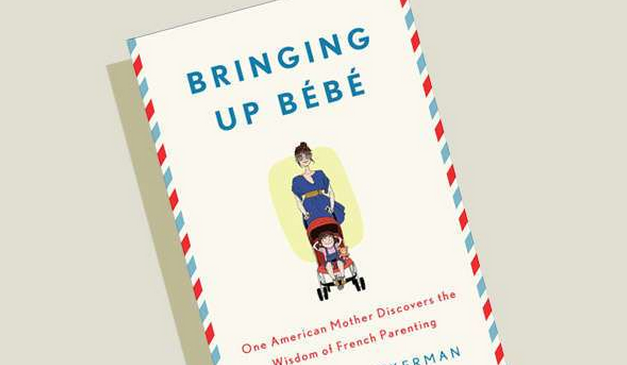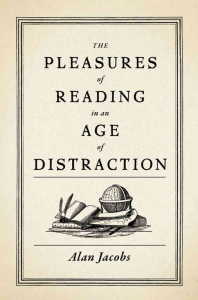
This is something I wrote at the beginning of 2014 for Medium. Since I started this blog I figured I could just migrate the stuff I wrote for Medium over here.
I always make it my goal to complete 20 books in a given year. For some reason (usually of my own doing, or not doing) I’ve never actually reached this mark…until last year.
Finally, with a few days left on the calendar, I closed the spine of my 20th book. Here they are, ranked:
1. Bringing up Bebe — A book on how the French parent by an American mother in the No. 1 slot? You bet.
Most of the best books I’ve ever read are thought-provoking how-tos wrapped in an entertaining story. This one was no different and changed the way I view parenting forever.
2. Someone Could Get Hurt — I rarely emit laughter while reading but I was like Jimmy Fallon under the influence of nitrous oxide with this book. The phrase “it’s funny because it’s true”? That pretty much sums it up.
3. On Writing Well — The best book I’ve ever read on writing. Granted, my collection is limited, but I could tell how serious the author was about not only writing but editing well — something I’m still struggling to grasp.
4. Why We Write — Another amazing book on writing and doing it well. Contains blurb-y chapters from nearly two dozen scribes on why they do what they do. The “because I can’t do anything else” excuse got old, but it’s still an idealists dream book.
5. Crimes Against Logic — Not so much for the author’s views but for how he teaches logically coming about those views. I love that folks with vastly differing opinions can share logic, it brings us together in that way.
6. An American Caddie — A really cool story that made me wish I was back in college. About a guy who travels to Scotland every summer to caddie at the Old Course. A coming-of-age read, really, and a great one at that.
7. Straight Flush — A breezy Ben Mezrich read on the folks who created AbsolutePoker.com. As with most Mezrich stories I’m sure liberties were had by all but that didn’t make me enjoy it any less.
8. Home Game — Malcolm Gladwell has called Michael Lewis the best writer of our generation and though I don’t agree I think he’s a pretty brilliant communicator, anyway. I’m impressed by how much he leaves out of his books — you can tell he cut the filler and only brought the goods. Appreciated.
9. David and Goliath — Speaking of Gladewell…this is my least favorite book of his I’ve ever read but that’s like notating your least-favorite Kevin Durant 40-point game. Still great.
10. Steal Like an Artist — I read this at the very beginning of 2013 and we’ve accumulated three kids since then so I don’t remember a lot of it but it includes a lot of great quotes like this one:
“If you ever find that you’re the most talented person in the room, you need to find another room.”
11. Divergent — I try to bang out one semi-teen drama series a year. Last year it was Hunger Games, this year it was the Divergent series.
I thought Divergent was less entertaining but more thought-provoking than Hunger Games which is probably a good thing.
12. Insurgent — I think the second half of the second book in a three-book series is probably the toughest part of the series to write. Veronica Roth nails it, though.
13. Allegiant — I liked book No. 3 in this series [searches for infinity key, can’t find it] better than the third Hunger Games book.
14. Humility — Tough read at times but maybe that’s because I’m not intelligent enough to decipher it. This was maybe the quote of the year for me:
“Yes, let us ask whether we have learnt to regard a reproof, just or unjust, a reproach from friend or enemy, an injury, or trouble, or difficulty into which others bring us, as above all an opportunity of proving Jesus is all to us, how our own pleasure or honor are nothing, and, how humiliation is in very truth what we take pleasure in. It is indeed blessed, the deep happiness of heaven, to be so free from self that whatever is said of us or done to us is lost and swallowed up, in the thought that Jesus is all.”
15. The Man Who Quit Money — Crazy story about a guy who lived decades without possessing a single monetary unit. Seemingly impossible but his tale has something everybody can take from it.
16. Start — Jon Acuff’s newest. He’s hurt by his prior success because now we (I) expect so much of him. This was good and I gleaned a lot, still. Like this:
“People are mistaken when they think chasing your dream is a selfish thing to do. As if perhaps being average is an act of humility. As if perhaps wasting the talents you were given is proof that you’re a considerate individual. It’s not.”
17. Into the Wild — You’ve likely seen the movie (I haven’t) about the kid from Georgia who moved to Alaska to get away from the madness of life. A tragic ending but a fun, thoughtful read.
18. The Power of Half — It kept feeling like this should have been an amazing book but it never really got there for me. Good premise — give away half of what you make — but the execution never hooked me.
19. The Art of Being Unmistakable — I liked how short it was but it felt like a mishmash of every “do what you love” book and article I’ve ever read. Not enough originality.
20. Dead Solid Perfect — A novel from Dan Jenkins. I expected to be “wowed” and I was just “oked.” It wasn’t bad, and it was certainly a fast read, but not my favorite book of the year, for sure.


